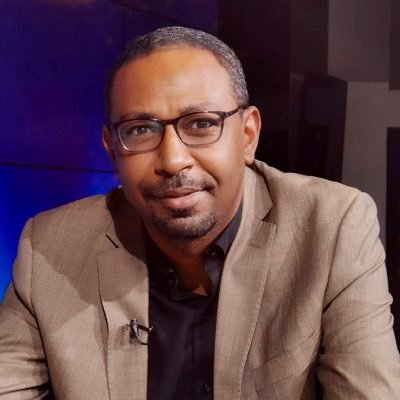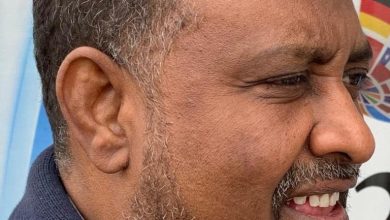The Advancement Movement’s Use of Civilian Protection to Serve the Military Agenda of the Rapid Support Forces and the UAE

By Amjad Farid Al-Tayeb
One might commend the “Advancement” coalition for finally acknowledging the issue of civilian protection after 18 months of denial, justification of violations, and delaying any recognition of them. Yet, instead of adopting this stance as a neutral humanitarian position to rebuild their connection with the people whose suffering they contributed to through betrayal, “Advancement” insists on using this humanitarian banner to support the military faction they ally with. This echoes their earlier attempts to employ revolutionary slogans and rhetoric on democratic civilian transition to lend legitimacy to the Rapid Support Forces (RSF) militia’s narratives at the outset of the war.
The cause of civilian protection is primarily humanitarian and should have been a concern for anyone invested in Sudanese affairs since the outbreak of the conflict. However, they were too preoccupied with securing power-sharing through a quick solution that would reward the belligerents with a seat at the table.
This humanitarian matter should not be politicized or used to sway the military balance in favor of one party over the other. Civilian protection concerns the victims of this war, making it disgraceful to exploit their suffering to serve the interests of either side. This is precisely what “Advancement” does in its rhetoric, using civilian protection measures as a smokescreen to offer political support to the RSF, to the point where it might as well announce its alliance.
Members of “Advancement,” including its leader Dr. Abdullah Hamdok and spokesperson Bakri Al-Jak, have outlined their civilian protection plan, which involves instituting a no-fly zone, establishing safe zones, and deploying international forces on the ground. Al-Jak also proposed setting up three camps along the borders with South Sudan, Egypt, and Chad for civilian protection, a suggestion so ludicrous it barely warrants discussion.
The creation of safe zones has long been advocated by humanitarian organizations and research centers concerned with Sudan. This concept predates the current calls by “Advancement” members, who once portrayed Sudan as safe, while holding congratulatory meetings with RSF leader Hemeti in Addis Ababa to sign agreements. Even earlier, members of “Advancement” (then known as the “Civilian Front”) were engaged in obscuring evidence of atrocities and misrepresenting incidents to shift blame away from the RSF.
Safe zones are intended to be free from all forms of combat, whether aerial or ground, allowing civilians across Sudan to sustain a semblance of normal life. This proposal has been refined over time to make it feasible, yet “Advancement” insists on tying it to a political and military demand — the no-fly zone — thereby complicating the situation and entangling civilian protection in a political tug-of-war.
Meanwhile, a no-fly zone is already in place in Darfur, along with an arms embargo, both of which have been flagrantly violated by the UAE since the first month of the war, without a word of protest from “Advancement.” Now the call for a no-fly zone seems to be driven by the UAE’s agenda to reduce the mounting costs of supplying weapons to the RSF through Chad and other countries. The UAE recently attempted to use the Al-Geneina airport but was blocked due to the Sudanese military’s aerial presence. Transporting supplies through neighboring countries has exposed the UAE’s involvement in Sudan’s war, placing it in an embarrassing position globally and regionally. Emirati planes have continuously breached Sudanese airspace, delivering aid to the RSF, without even a mild objection from “Advancement.” Indeed, some members, including the coalition’s leader — who is paid by an Emirati research center — have rushed to defend the UAE as a “sister nation” despite its arms killing Sudanese civilians.
One has to wonder: if this proposal had been implemented earlier, what would have been the fate of civilians in Wad Al-Noura, where RSF mercenaries slaughtered hundreds before being repelled by military aircraft? Or in El Fasher, where air support was critical to defending the city from RSF assaults that persisted for months? Is it acceptable to subject more Sudanese civilians to the same fate as those in Al-Geneina? Civilian protection mechanisms must be tailored to the threats civilians face. These are not questions that can be sidestepped through political gamesmanship. They demand answers rooted in the reality on the ground, not rhetorical deflections.
If civilian protection is the true aim, the safe zones that “Advancement” claims to support would suffice, particularly with effective monitoring mechanisms to protect these zones from both sides. A no-fly zone might have been acceptable in the initial months of the conflict to limit its spread and prevent both sides from using highly destructive weaponry. However, at this point, this measure would directly alter the military balance of power and control the means of engagement between the warring parties, not to mention serving the agenda of the UAE, which funds and shelters “Advancement” and the RSF, thus compromising the neutrality of the proposal.
To those in “Advancement” who claim to represent Sudanese voices while attempting to monopolize them, I can only say: “Shame on you.” Your deliberate entangling of political agendas and your attempts to execute foreign orders at the expense of Sudanese lives and security are disgraceful.
If you feel no fear for the consequences of your actions, then at least show a bit of shame.



